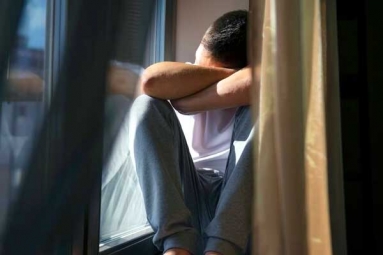
Depression tends to come back, especially if it's not treated or is only partially treated. Sometimes the people who live with a depressed person are better at spotting the signs of a recurrence sooner than the person himself. Increasing isolation is often a clue, as is sadness, expressions of worthlessness or guilt, and sleeping or eating too much or too little. If you've seen this pattern before, you know what you're looking for. This is the time to suggest that the person might want to call the doctor.
Self-harm is a real threat. Depression kills, and suicide is the 11th leading cause of death in the U.S., according to the National Institute of Mental Health. More than 90% of people who commit suicide have depression or another mental disorder, with or without a substance abuse problem.
Clues to the possibility of suicide:
->The existence of a suicide plan
-> Access to a gun or many pills
-> Feelings of worthlessness
-> Feelings that one has committed some unforgivable offense
-> Voices telling the person to kill himself or herself
-> Taking care of things like wills, contacting old friends in a systematic way that suggests "good-bye," and giving things away
-> A recent divorce or other personal trauma
->A chronic pain condition or medical illness
-> Expressing thoughts like, "You'd all be better off without me"
-> Excessive use of alcohol or drugs
A suicide attempt is not a pathetic bid for attention. A person who has made a plan to commit suicide needs to be under constant supervision. You can get help from the National Suicide Prevention Lifeline, at 800-273-8255. You should also notify the person's physician. If the threat of self-harm is imminent, call 911.
Asking about suicidal impulses does not "put ideas" in a person's head. If you're concerned about suicide, you need to ask directly. If the person has access to guns, medications, or other items that could be used for self-harm, get rid of them.
source: health























